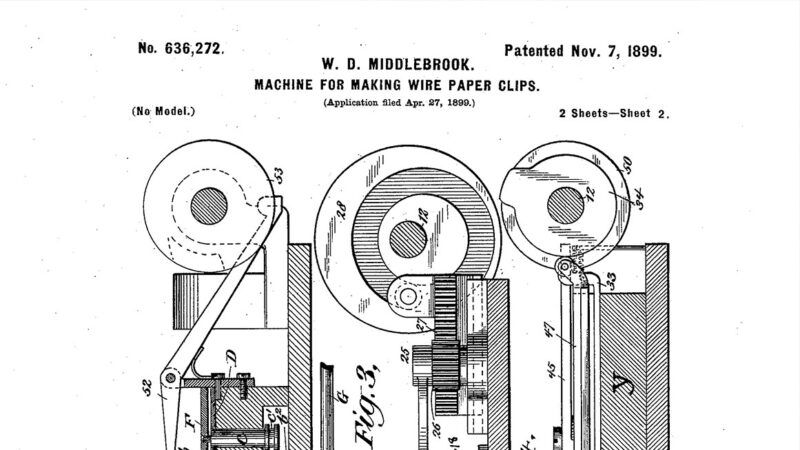Archives: July 2023
Excerpts from Reason's vaults regarding Adam Smith

6 years ago
May 2017
"By improving workers' skills and encouraging purpose-built machinery, the division of labor leads to miraculous productivity gains. Even a small and ill-equipped manufacturer, [Adam] Smith wrote in The Wealth of Nations, could boost each worker's output from a handful of pins a day to nearly 5,000.
In the early 19th century, that number jumped an order of magnitude with the introduction of American inventor John Howe's pin-making machine. It was 'one of the marvels of the age, reported on in every major journal and encyclopedia of the time,' writes historian of technology Steve Lubar. In 1839, the Howe factory had three machines making 24,000 pins a day—and the inventor was clamoring for pin tariffs to offset the nearly 25 percent tax that pin makers had to pay on imported brass wire, a reminder that punitive tariffs hurt domestic manufacturers as well as consumers."
Virginia Postrel
"Adam Smith Needs a Paper Clip"
6 years ago
May 5, 2017
"Adam Smith pointed out that your baker doesn't sell you bread out of the goodness of his heart, he does it to earn a living. When you throw self-interest and competition into the mix, bread prices plummet and scales of economy crank out enough bagels that for the first time in human history entire societies are more concerned about gluten intolerance than starvation.
If anyone in the Soviet Union had raised a serious alarm about 'gluten intolerance,' they would have been laughed out of the breadline and then probably shot for good measure. Socialism, despite the best of intentions, impoverishes people."
Andrew Heaton
"Lighten Up, Francis"
11 years ago
March 9, 2012
"One thing I find refreshing in Smith is his wariness of business people. This is something we ought to frequently remind market skeptics. Smith knew the difference between being sympathetic to the competitive economy—which he called the 'system of natural liberty'—and being sympathetic to owners of capital (who might well have acquired it by less-than-kosher means, that is, through political privilege). He knew something about business lobbies."
Sheldon Richman
"Adam Smith vs. Crony Capitalism"
45 years ago
December 1978
"When at a later point Adam Smith characterized the acquisitive material interests of individuals as 'the most vulgar and the most obvious,' he was identifying, not the intrinsic disqualifications, but the superior qualifications of these interests as the basis of social order.
Smith was here encapsulating the growing recognition of a century of previous thought, that the most 'vulgar' and 'obvious' passions (and 'interest' was but the term by which to elevate one 'passion' above the others) are the most powerful and universal and thereby best qualified to render human behavior predictable. To teach (or release) persons to pursue their own interests does nothing for social order when those interests may be so diverse as to include interest in salvation by God, interest in moral approval by humankind, interest in craft, interest in sex, interest in material comfort, and so on. But if a person is sure to pursue his material advantage to the exclusion of all else, then be he prince or common man, we can predict with an acceptable probability what he will do."
David Norton
"The Genesis of 'The Invisible Hand'"
46 years ago
November 1977
"One does not need to read more than a few pages of Smith to see that here was a man whose distinguishing mark was not analytical ability—admirable though that was despite the fairly numerous mistakes which later economists exposed—but civility; urbanity; freedom from subservience to or partiality for special interests; absence of the passion that corrodes thought, especially thought upon the problems of society; a capacity to see life whole; an ability to see men as they are and not as the gods or utopians might wish them to be; and an absence of any attachment to a grand theory of history or society purporting to give us the key to everything."
Arthur Shenfield
"A Wealth of Adam Smith"


Show Comments (11)